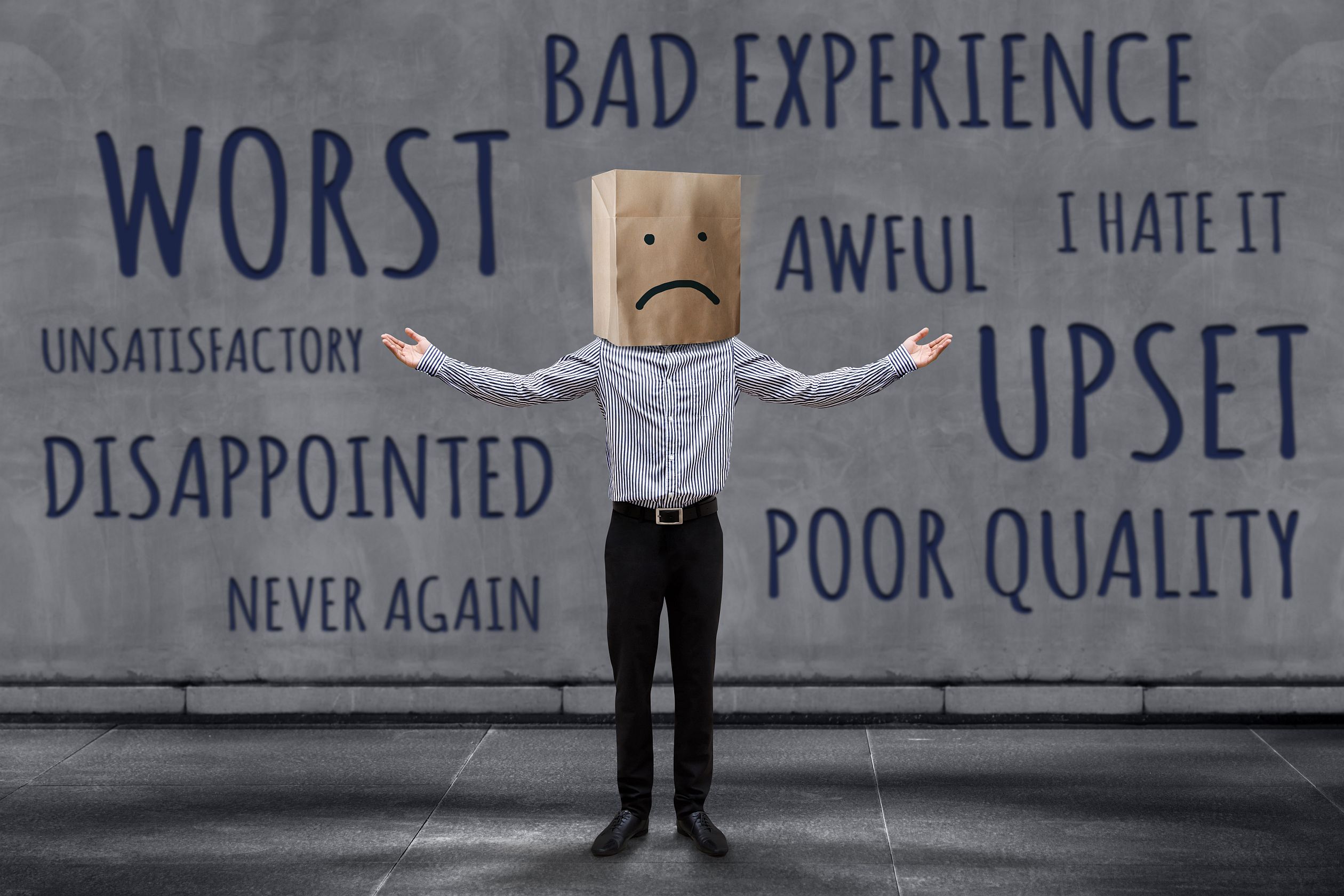By:
Links to sections (tap to open)
Decision-Making Tools – Choosing a Park
Previously, we covered the 7 costs of mobile home park land renting (part 2). We also covered the systems you agree to when you buy a home in a for-profit park (part 3), Now you can plan your chances of financial survival in a mobile home park.
At this point, you should understand the strengths and weaknesses of the current mobile home park system. You will have added your risk level to your criteria for choosing a park and you will know what kind of management you want.
Once you have decided what type of park meets your needs and ability to live there, you can start looking at prices in those parks. Unfortunately, the ideal park may not exist in your area. You may not get rid of risk, but you can strive to reduce it and be prepared instead of surprised by sudden changes in park management or ownership.
These cost comparisons are not absolute, but are relative. Two identical mobile home parks, located next to each other will probably have noticeably different rent levels if one is nonprofit or resident-owned, and the other is for-profit. Also, house sale prices will differ. It’s not as simple as shopping for groceries, but you can know the territory before you make a big purchase.
The Mobile Home Parks With the Lowest Land Rent Are Resident-Owned Parks, AKA ROP, or Resident-Owned Communities (ROC)
Generally, the mobile / manufactured home parks with the least expensive rent are the resident-owned communities (ROCs), also known as resident-owned parks (ROPs).
At ROCs, the homeowners work together to make decisions about how to operate the park. Homeowners decide their own land rent levels (association fees). They decide who to hire, who manages the park, the park expenses and maintenance – they decide everything! After all, it’s their park. They bought it from the founding family and they vote together on how to run it. This arrangement is similar to condominium projects where the homeowners co-own and manage the entire property.
Resident-owned parks are desirable because many mobile home owners want to avoid the risks of private, for-profit parks. The mobile home owners realize they are vulnerable and lack protection and strive to take control of their fate. They want a more secure, predictable future and a stable neighborhood. The most reliable way to achieve that under our current legal system is through co-ownership of the land, not renting it.
If you live in a family-owned park, you should organize your neighbors and work to make an offer to buy the park from the mom-and-pop owner before it gets bought by a big corporation that turns out to be predatory.
Over the long term, the financial security you get in an ROC is far above what little security you get in a for-profit corporate-owned or family-owned park. When residents own their own park, they are unlikely to spike rents (association fees) on themselves and are more likely to keep the park well maintained. They work to ensure financial and neighborhood stability. The homes in resident-owned parks may be higher priced than those in riskier parks, but the rent savings and security may compensate.
As a community service, here are two organizations that can help you get started toward buying your park: PMC Financial Services and ROC USA (MHP411.com does not receive any financial benefit from these organizations). Another listing of ROCs for California is here.
Community Land Trust Parks (CLTs) Are Planned for Affordability
Community land trusts are similar to Resident-Owned Communities and can have low rent levels like resident-owned parks. There may be restrictions on homeowners making a profit on the sale of their homes in a CLT park and the Trust may prefer low income buyers.
It is important to ask questions, get documents and do your homework to learn as much as you can about these parks. If you move into a community land trust park, you will want to be involved in decision making about how to operate the park. You will probably be required to participate in voting on how to manage the park because you will be part owner of the entire park.
There may be parks that restrict profiting and favor low income residents, although they are not specifically labeled as community land trust parks.
Nonprofit Owned Mobile Home Parks Offer Affordability and Stability
These parks are owned by nonprofit corporations that buy them and operate them as a civic benefit. Because they are not seeking profit, they tend to offer financial security. Their rent levels are usually lower than for-profit parks.
Nonprofit mobile home parks provide a low cost way for low income or frugal citizens to own a house. Nonprofit park owners usually have a philosophy that is supportive of affordable housing. They work to ensure the park residents have a good quality of life. The rent levels are low but high enough to pay for park maintenance, upgrades, staffing and business overhead. The homes in these parks may cost more to buy than those in for-profit parks, but the lower rent and security can make it worthwhile.
Rent Stabilized Parks Have “Fair” Rents, but Need Homeowner Alertness and Civic Engagement
The next type of low rent park is usually in the cities or counties where the local government has stabilized lot rent prices. As explained elsewhere there is a risk that for-profit parks can be sold to large corporations without the homeowners knowing about it in advance. These new landlords may jack up rents causing the homeowners to lose their financial security, stability and affordability.
Some enlightened cities have recognized the uniquely trapped nature of manufactured mobile home owners in for-profit land-rental parks and have stepped in to prevent unfair abuse. Usually the city or county governments where these parks are located express moral values about the need for affordable housing and fair treatment of citizens.
In California, for example, over 85% of all rent stabilization ordinances (sometimes erroneously called “rent control”) are strictly for mobile home parks[1], not apartments nor site-built homes. These laws also work to make sure that parks are well maintained. However, less than 25% of the jurisdictions in California have these protective ordinances. This situation is changing. Mobile home owners are increasingly working together to protect affordability and limit rent gouging.
In rent stabilized parks, homeowners should be civically active and watch local government trends and politics to prevent the loss of their rent stabilization laws. If the protective laws in these communities are repealed, then rents can rise dramatically while home values fall, creating a homeowner losses on two fronts.
The Financially Safer Mobile Home Parks Usually Have Higher Home Prices, But Lower Rent
Home buyers are attracted to the security of the 4 types of affordable, stable parks (see previous). This allows sellers to ask for more money for their homes than compared to those in a for-profit park with higher rent. The higher home cost may not be so discouraging when balanced against the low rent and added stability of these 4 types of parks.
Corporate-Owned vs. Family-Owned Mobile Home Parks
There is often confusion about the term “corporate-owned park”. Often a family-owned park is owned in the form of a corporation for various reasons. The key questions to ask about a park are who the beneficial owner is and what are the business practices of that owner? Where is the profit going to? Where does the real owner live? Is he related to the park founders? How many parks does this landlord own? And is the park managed by a professional management company or by the owner himself?
Family-Owned Mobile Home Parks May Have Fair Rents, but at What Risk?
Family-owned mobile home parks are the most common type of parks, but are increasingly sold to large corporate aggregators. These new owners may raise the risk of living in those parks. You could be living in one of these family-owned parks when it is sold to a large corporate aggregator or up-and-coming profiteer. These get-rich buyers may hike rents and cut services, wrecking the affordability and security you sought.
Often, rents are lower in family-owned or mom-and-pop owned parks compared to parks owned by corporate conglomerates. This assumes that the park is still owned by the original family of mom-and-pop builders. These local business people often have an interest in the community and take pride in ownership of the park.
Mom-and-pop owners may own one or more parks, and live in the local community near the park. They usually are not “absentee owners” that live far away. By living nearby, they have better access to the park to be more “hands-on” and involved in the daily operations. Often the mom-and-pop owners are known to be community leaders and are local residents who are concerned about their reputation—an important circumstance for the mobile home owners in the park.
Some mom-and-pop or “family-owned” mobile home parks are passed down to succeeding family generations. The original founders of the park may have retired or passed away. Family-owned parks are commonly owned by the children, grandchildren or even great-grandchildren of the family founder.
It is also more common for these heirs to be less involved in the daily management and operations of the park. They may employ professional management companies to run the park while they remain the owners and receive the profits from operations. However, even large corporate owners may use professional management companies. Sometimes park residents believe the management company is the owner, but they can be two separate things.
When shopping for a mobile home, ask the park office about who actually owns the park and who actually manages the park. Ask if they are part of the original founding family that first built the park. Try to get human names and history along with the corporate names and history. This information can be useful when researching the quality and risk level of the park.
Professionally-Managed Mobile Home Parks
In contrast to mom-and-pop owned and operated parks, some parks are run by professional management companies that monitor and manage the park for the real owners. The actual park owners or landlords may live far away or be detached from the daily operations and conditions in the park.
Management companies may be employed by park owners when the original park founders pass away and leave the park to their heirs or the park is sold to a large for-profit corporation. Home buyers seeking financial assurance should know the difference between the company that is managing the park and the actual landlord that owns and receives profit from the park.
Even though the park may be run by the founder’s children or grandchildren, there may not be the civic commitment and pride of ownership that the original founders demonstrated. However, a family-owned park is still worth looking into. Many large corporate-owned parks are bought from the families that founded them. If you live in a family-owned park you may risk that someday the park may be sold to a larger corporation that may raise rents and lower home values. Unfortunately, you may not be notified of these changes far enough in advance.
Large Corporate Aggregator-Owned Parks
Once your park has been purchased by wealthy investors and added to a portfolio of mobile home parks, your housing security may decline. These investor-owned parks may be the most expensive parks to live in. Not just due to higher rent levels, but also potential home equity devaluation and slow, but creeping park deterioration due to cost-cutting. Affordability may be lost if the park becomes gentrified with compounding, ever-higher rent increases.
Sales agents may encourage uninformed buyers to move into these parks with special “move-in”, “get-started” deals that last the first few years. But the new homeowners may find the park becoming unaffordable in as little as 3 – 5 years when the “discount” expires.
Some aggregators may boost profits further by cutting costs on staffing and cutting park maintenance. As John Grissim[2]points out: “Research carefully”. Here is a list of some major corporate aggregators that you should know. The available record of one such aggregator is kept here so you can see the rent costs rapidly rising over time.
Large corporate aggregator parks may be difficult to change or influence. Homeowners seeking to secure stability and affordability by buying the park, or enacting local rent control, may find these goals especially difficult. Their efforts may be opposed by well-funded, large corporate park aggregators who hire PR firms, deploy lobbyists, and fund political campaigns.
What About a Single Manufactured Mobile Home on a Piece of Land?
From reading here, it may seem as if mobile homes only exist in parks but that is not true. Manufactured mobile homes are not always located in mobile home parks. In some localities, a landowner can have a manufactured mobile home towed to his land and hooked up to the utilities that he provides himself or are available locally. This depends on zoning regulations and utility service availability. A single mobile home does not make a park. Usually, single mobile homes are in isolated rural areas.
As always, when judging legal agreements, seek competent legal advice from attorneys experienced with protecting mobile home park homeowners.
Here is a general quick checklist of parks from most secure to least.
Footnotes:
- In some regions, rent control laws are more commonly adopted for mobile home parks.[48] Reasons given for these laws include residents owning their homes while renting the land the home sits on, the high cost of moving mobile homes, and the loss of home value when they are moved. California, for example, has only 13 local apartment rent control laws but over 100 local mobile home rent control laws.[citation needed] No new mobile home parks have been built in California since 1991.[citation needed] https://en.wikipedia.org/wiki/Rent_control_in_the_United_States
- Be very careful about communities owned by large corporations, which have no souls. Some are quite good, others awful to the point of being predatory. These companies exist to make money for their shareholders and one way is incremental annual rent increases (usually in the 4%-5% range) that in a few short years can really put tenants living on fixed incomes in a bind. Research carefully. http://www.grissimguides.com/grrep17.htm
John Grissim, The Grissim Guides to Manufactured Homes and Land
A quick introduction to the financial risk level of various kinds of mobile home parks.
To save money and energy living in a mobile home park, you need to know all the costs. Do you?
The conditions you submit to when living in a mobile home park. They are often unwritten, even invisible.
Shopping for low mobile home park rent? Compare different kinds of parks for their rent levels and security.






